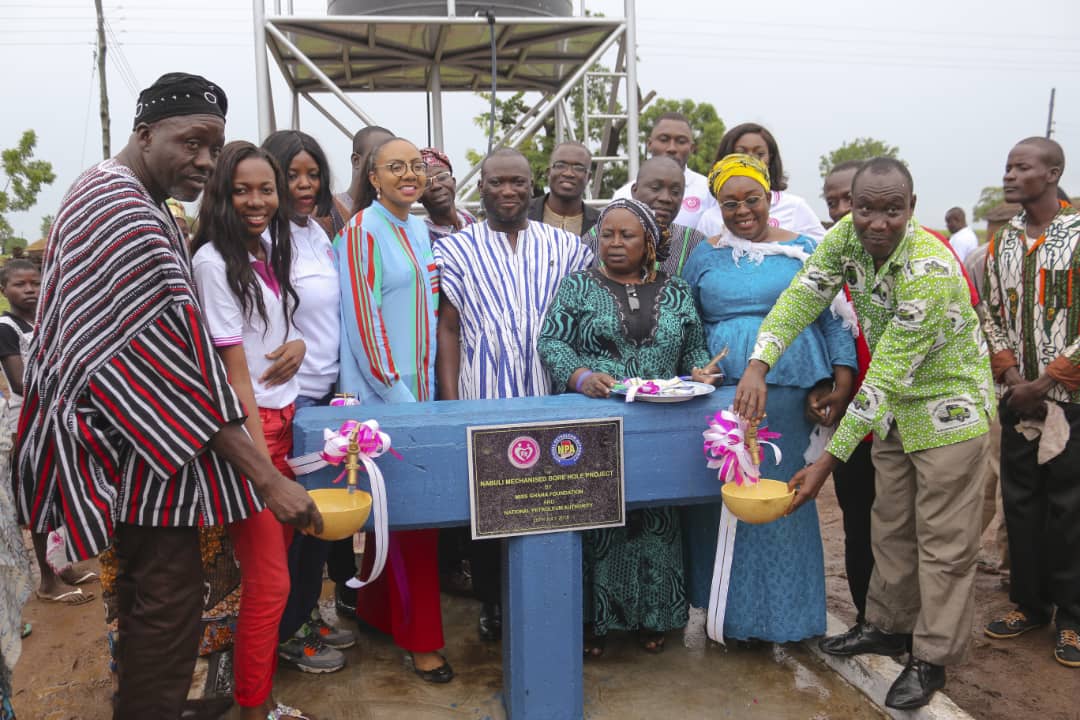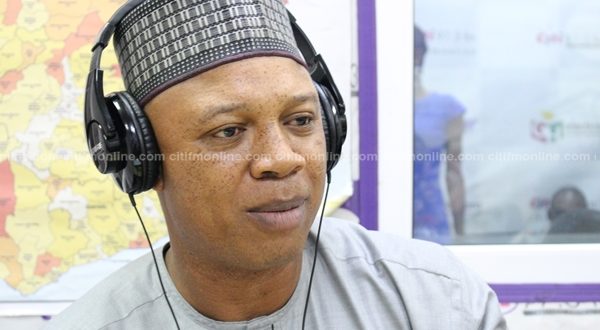
NPA constructs mechanized borehole for Nabuli alleged witches

Inmates of the alleged witches camp at Nabuli in the Gusheigu District of the Northern Region will no longer suffer in search of water or drink contaminated water with animals from the same source.
This is because the NPA in collaboration with the Miss Ghana Foundation has constructed a mechanized borehole at a cost of Gh₵88,867.75 for the Nabuli community.
The project was initiated by the Miss Ghana Foundation and funded by the NPA with technical support from New Energy Ghana.
There are over 800 people in the community which is far away from the Gusheigu Township.
Chief Executive Officer of the NPA, Hassan Tampuli at the inaugural and official handing over ceremony said “Access to clean water is not only a basic need for mankind but a necessity to sustain all forms of life.”
“Water scarcity and lack of access to water by the poor are among the main obstacles to the enjoyment of basic amenities of life. This water system we believe will contribute to our goal of sustainable utilization and equitable distribution of resources.”

He pleaded with the community leaders to zealously maintain the project to serve its purpose.
Executive Director of the Miss Ghana Foundation, Madam Inna Maryam Patty commended the NPA for the humanitarian service.
She anticipated that the project would help meet goal six of the Sustainable Development Goals which is aimed at ensuring availability and sustainable management of water and sanitation for all.
According to her, the Nabuli mechanised borehole project has a yielding capacity of 70 litres per minute with a depth of 34 metres which has proven to give a good yield all year round to the entire community.
“It is a 2 number 10,000 litres solar-powered mechanized water system.”
The Gusheigu Municipal Chief Executive (MCE), Musah Issah, recounted how the inmates and the entire community in the past relied on rainwater for survival.
“In most cases, they were also forced to walk long distances hoping to find water from other sources. But now, as a result of this project, all these will be a thing of the past. Thanks to this system, school children will also be able to concentrate on their school work, which in turn will improve academic performance. Moreover, they will no longer be exposed to waterborne diseases such as diarrhea and cholera.”
The Nabuli community is one of the isolated areas in the Northern Region where ostracized women, their caretakers and children are camped.
The inmates’ major source of livelihood are donations from philanthropists and Non Governmental Organizations.
The road network from Gusheigu Township to the community is deplorable.
–
By: Abdul Karim Naatogmah/citinewsroom.com/Ghana
Source: citifmonline.com






